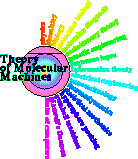
Schneider Lab
origin: 2000 Jul 24
updated: 2011 Aug 11
If you can get any one of these programs to work on a compiler (give you the correct date) then virtually all other Delila programs will also work on that compiler.
These programs contain standard routines for manipulating date and time information. This information is used to stamp files to avoid confusion with printouts. These routines are the only non-standard Pascal calls in the Delila system. The routines are:
The package of time routines can be automatically transferred into Delila programs using the module program. The module program provides a system independent insertion mechanism. Module is pure standard Pascal and should compile on all compilers.
How To Use the Module Program
Pascal programs do not have a standard way to interact with system
file names. For simplicity, in the Delila system, we use
standard names for the input and output of programs such as Module.
Suppose we are converting the source code for delmod.p
to GPC using timegpc.p Then
briefly,
cp delmod.p sin(where cp is the unix copy program).
cp timegpc.p modlib
echo -n "" > modcatNote that this wipes out the previous contents of modcat. You may reuse modcat only if you do not modify the modlib.
moduleThe result will be in "sout" and a list of the modules transferred will be in the "list" file.
cp sout delmod.pThe result is that the time modules in timegpc.p are now substituted into delmod.p.
Delmod Program
The
delmod.p
program is the place that I keep the current working modules.
From there the time modules are transferred into various programs.
![]()

Schneider Lab
origin: 2000 Jul 24
updated: 2011 Aug 11
![]()